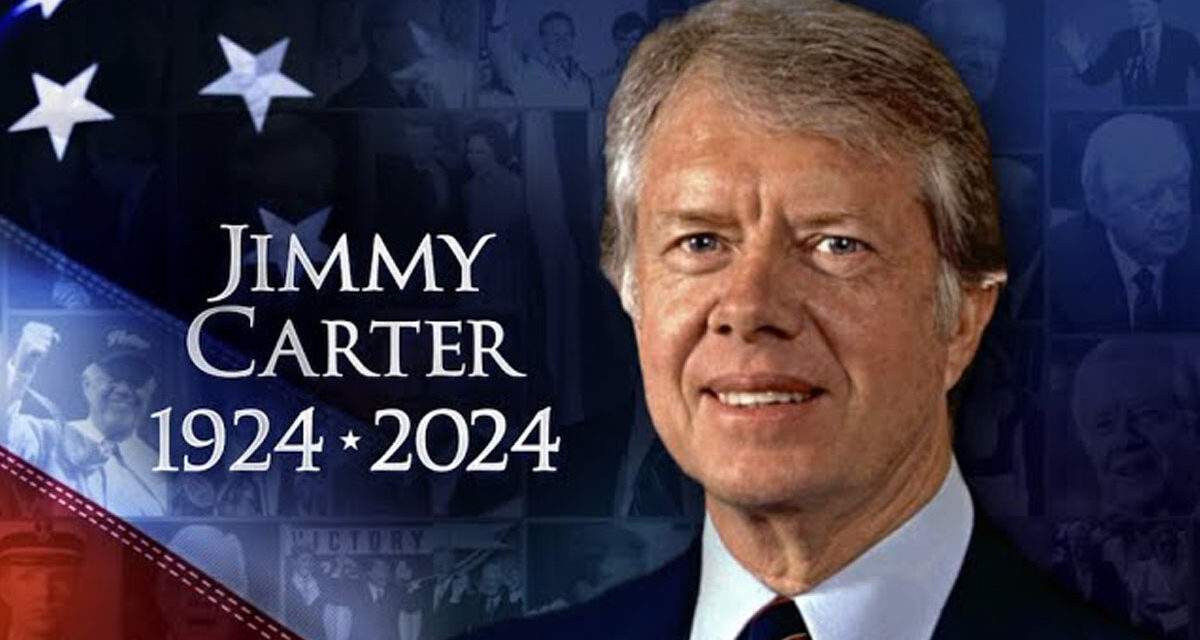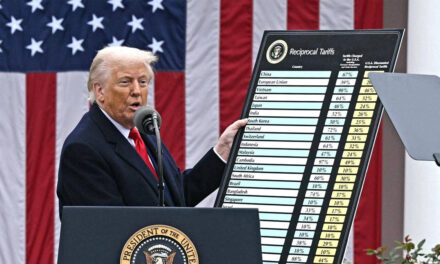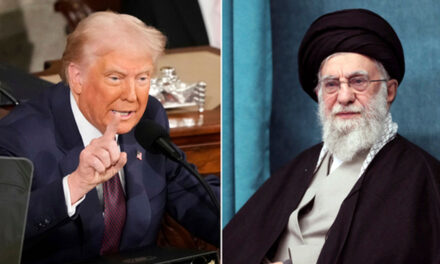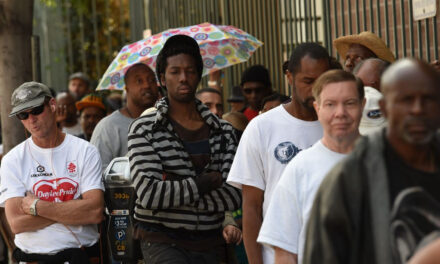
Jimmy Carter has been consigned to history … may he rest in peace

President Carter was a good man. There is almost universal agreement on that point. He was not a great President, however. So sayeth, progressive Democrat Jonathan Alter – journalist, writer and author of the presidential biography, “His Very Best. Jimmy Carter, a Life”
There can be no mistake, Alters is a fan of Carter – and writes of him in the most glowing terms. But Alter does not canonize him as most of the obituary writers do. He does not attempt to spin a largely failed presidency into one of great accomplishments. Being a good man does not automatically bestow competency and success.

When a CNN host talked about Carter’s early life as a civil right advocate, Alter demurred. He said that Carter’s indisputable civil rights advocacy came later in life. Alter noted that Carter was raised in a staunch segregationist, White supremacist family. Carter’s strong civil rights advocacy surfaced in his later years as governor of Georgia –and when he decided to run for President.
The portion of my book, “Who Put Blacks in That PLACE? The Long Sad History of the Democratic Party’s Oppression of Black Americans”, dealing with the younger Carter coincides with Alter’s assessment. I wrote:
“Jimmy Carter was viewed as a southern progressive and an advocate of civil rights, but his upbringing was very much the old South, and his civil rights beliefs were convoluted. In his book, “An Hour Before Daylight”, Carter wrote:
‘It seemed natural for white folks to cherish our Southern heritage and cling to our way of life. We were bound together by blood kinship as well as by lingering resentment against those who had defeated us. A frequent subject of discussion around my grandparents’ homes was the damage the “damn Yankees” had done to the South during Reconstruction years.’”
Carter was politically allied to the staunchest segregationists in Georgia.
“After losing the 1966 Democratic gubernatorial primary to a one-time ally and hardcore racist Lester Maddox, Carter had the opportunity to support moderate Democrat Ellis Arnall or even Republican Bo Calloway. Instead, Carter supported Maddox as a matter of political pragmatism. Four years later, Carter made another run for governor. This time he minimized campaigning in front of Black audiences and sought the endorsements of leading segregationist personalities. It worked and he became governor.
In his successful run for governor in 1970, Carter played the race card by widely distributing photographs of his opponent, Carl Sanders, posing with Black members of the Atlanta Hawks basketball team.”
Even as governor, Carter minimized the harshness of imposed segregation, expressing his belief that it was only “natural” for Whites and Blacks to want “to live among themselves”.
Up to his inauguration, the Carter family were parishioners of the Whites-only Plains Baptist Church — which had an official policy to ban “all Negroes and civil rights agitators.” It drew little attention in the campaign until October of 1776 – on the eve of the presidential election. Black minister Clennon Washington King, pastor of the Divine Mission Church in nearby Albany, Georgia, announced his intention to integrate Carter’s church by attending services on Sunday, October 31 – two days before the election.
Rather than embarrass Carter, Pastor Bruce Edwards recommended admitting King. The church council voted down the recommendation. Instead, they ordered the church temporarily closed –and recommended the termination of Edwards as pastor. Carter did not severe his ties to the church until 2000 — and it was not over racial issues, but the refusal to admit women to the clergy.
In his television appearance, Alter stated that, unlike the kinder and gentler image of Carter, he was a pretty tough cookie in private. I found that to be true in my research. Consistent with Altar’s assessment – although perhaps less gentile – I wrote:
“Carter’s public image cast him as a gentle speaking humble Christian. Those who have run afoul of Carter tell quite a different story. Privately, he was very vindictive and ruthless. Writing for Time magazine, columnist Hugh Sidey said: “The wrath that escapes Carter’s lips about racism and hatred when he prays and poses as the epitome of Christian charity leads even his supporters to protest his meanness.”
Alter also talked about Carter as President. The two high points of his presidency were the Camp David peace agreement between Anwar Sadat of Egypt and Menachem Begin of Israel. Not only did it look good on paper, but it also continued to work for 47 years, and counting. The second accomplishment – albeit more controversial — was the creation of the Department of Education as a free-standing Cabinet institution.
On the downside, Carter was plagued by a pernicious four-year inflation, gasoline shortages, the fall of the Shah of Iran and the seizing of 53 American diplomats as hostages in 1979 by the militant terrorist regime that took over the Persian state.
Carter authorized Operation Eagle Claw in 1980 – six months ahead of the presidential election – to rescue the hostages. He aborted the mission due to various “equipment failures” in several of the aircraft already in Iran. Eight service personnel were killed when a helicopter collided with a personnel transport plane during the withdrawal.
As a slap at Carter, Tehran agreed to release the hostages only after he lost the election to President Reagan. They were released shortly after Reagan’s Inauguration.
In terms of civil rights, Carter was a strong advocate for civil and human rights during his presidency – but he neither proposed or produced any major programs or legislation comparable to President Truman’s Executive Order integrating the armed services, President Johnson’s bipartisan civil rights legislation of the 1960s or President Nixon’s bipartisan Affirmative Action programs.
Carter appointed Blacks to high level positions, including Patricia Roberts-Harris as Secretary of House and Urban Development (HUD) and later as Secretary of Health and Human Services (HHS) – the first Black female to be both a Cabinet member and to hold two Cabinet positions. He issued Executive Order 12067 to increase coordination and improve enforcement of civil rights laws.
What distinguishes Carter is not what he did or accomplished as President. That was rather unimpressive – and the reason he has not been consider a very effective President.
It was his post-presidency that provided Carter with a unique legacy. Without doubt, he was a more involved and accomplished former president than any of his predecessors – or successors. By his tireless activities and endorsements, he became a tour-de-force for human rights, civil rights, and democratic elections.
Carter not only became a prominent world personality, but he was also a humble practitioner of his beliefs. He and his wife frequently labored building affordable homes for Habitat for Humanity. Carter in his blue jean coveralls — wielding a saw or hammer – became an iconic image in his post-presidential years. His post-presidency service was more notable by the fact that he died at the age of 100 — 44 years after leaving the White House.
Carter will be remembered as a decent human being … for being the only President to live to be 100 years old … and for his post-presidency service more than his years in the Oval Office. As a whole, it was a life well spent. May he rest in peace.
So, there ‘tis.


























Yup, all good to me.
Personally, I gained some maturity during Carter and the first memory is having a bluebird insurance award for my accident disability, funny story by itself. But I “invested” in a 6 month CD at 15% because I wanted to stay “liquid.” OMG: I coulda signed up for 10 years at 15% and I still have the nest egg today. Never spent it.
So Carter taught me some finance and economics, the hard way :>)
Then, being from DC area, I had one friend working in the White House with a different opinion of Carter. When Nixon was in deep kimchee, my friend remarked how, to him, a service guy, it never showed. Dick always paused, said hi by name, how’s it going and moved on. My friend remarked that as Carter got into it, when he saw him coming, he jumped into a utility closet as Carter, head down, 30% angle to the body, came cruising down the hall, no salutations for anyone. It appeared to us that when the chips were down, Carter inverted and tried to solve it himself rather than delegating and leading. Call it what you want, but Reagan’s ability to delegate mattered. Obama’s ability to do both mattered. Jimmy seemed to get caught up in his own jockey’s and reverted inward instead of out. Not a great leader.
I always thought the White House plumber had a great take on these guys from a vantage point few could ever see perhaps confirming Horist a bit on that for Carter.
But a great human who not only got better in each passing year, but FUCK ——- late nineties and still swinging a hammer to help. He will be missed.
Thanks to the author for a great piece.
And your daughter
The evil men do is oft interred……
Not to say Carter was evil, but he was a politician and as a politician, not all that good. ANYONE could have beaten Ford after Nixon.
And let’s not forget the debacle with Iran set up 50 years of middle east, ne, global issues.
As for post-presidency, his global travels were used by questionable foreign leaders to white wash elections.
But Habitat? All credit due for that.
And credit for his marriage.
But no credit for getting a Degree from Ma Tech. (Honorary PhD does not count. Gotta put in the time.)
And as a public speaker? One of the best I’ve seen (which I did with that honorary.)
But, Last point: He sure as hell died happy though. No longer #1.
Good piece Larry. For once you strike a balance in your writing. You start out criticizing Carter then tell the other side and praise Carter. Good job. It would be nice if you could do this balance thing in more of your writings.
Election of 1776? Have a chat with your editor! I think the first POTUS election was 1788.
What distinguishes Carter from today’s president-elect is that he told the truth to the people. Carter was not an election denialist. Carter was even kind in his 2016 statements about Trump. I remember in a campaign debate between Carter and Reagan, Carter said the number one concern of school children is nuclear proliferation. Well, most people chuckled and said that school kids do not even know what nuclear proliferation is let alone use the words. Well after Reagan’s election, someone did a survey of school children and it turned out that nuclear war was the number one concern according to the survey. Kids said war, they did not say proliferation. I remembered those “Duck and Cover Drills” (you can google it and find training videos on it on youtube) and the air raid drills.
I was in the U.S.N. before and during Carter’s administration, and what I remember most was how he left our ships in a state of disrepair. It was so bad that several of our ships leaked. And I remember when I got out, my first mortgage was at 13 5/8% . We quickly learned (if we did not already know from being on a military salary) how to budget and delay gratification. Gas lines were common. Food prices were up as inflation was quite high. That is what turned me to the GOP.
Carter’s big mistake was how he handled rescuing our people from Iran. The Israelis told us not to use those helicopters because desert dust would clog the oil filters and the intakes, and cause problems. Carter did not listen. And yup, they sure did cause a problem. Americans did not forgive Carter for the botched rescue.
But Carter’s Christian journey from segregationist to home builder for the poor and advocate for world peace among all people is to be very admired. This aspect of Carter’s life is a great model for Larry Horist. What a joy it would be to see Larry grow into a quality writer that writes honestly about both sides of the issue, the good and the bad like he did in this article – the angels would sing!!!
Tom … Good catch on the date. Washington took office in 1789. As you likely know, the new nation had a number of “presidents” under the initial Articles of Confederation from 1776 to 1789, when the Constitution was enacted.
Wow, the slams just keep on coming. What makes you think, and can you absolutely prove Trump does not ever tell the truth? Just because the Deep State and Liberals hate Trump and lie about him, doesn’t mean Trump lies. How many lies have you told in your life? I am only just questioning, not slamming you, Tom.
By the time President Trump left office, he had made an estimated 30,573 false claims, according to the Washington Post Fact Checker, which informed this study.
Go to Forbes dot com and look up the article, “Trump Is Lying More Than Ever: Just Look At The Data”.
Vanderbuilt University go to *https://news.vanderbilt.edu/2023/09/18/new-study-reveals-correlation-between-trumps-repeated-falsehoods-and-public-misperceptions/*
Just google statistics on how often Trump lies. One of the statistics sites tracked him as telling some form of lie 72.8% of the time.
As an independent, I like candidates that tell the truth.
Trump promised to end the Ukraine war before inauguration. That’s gonna be a big whopper.
He claimed New Orleans rampage was foreign. It was not.
Trump claimed Biden drained FEMA. That’s a lie.
Trump said Newsome failed to sign a Water Restoration Act. It’s not only a lie, but no one except Don even knows what that is.
These are just a few his big whoppers that seem to get bigger with his age.
Trump lies are really low fruit.
So, I suppose Trump should be arrested and put to death for that. For lying, just as all of you say about me. Maybe I should be put to death for believing. Believe in what I perceive as the truth. I don’t read Liberal newspapers and the Wapo is now getting a bad name, so should I get that paper and sway my mind to something I do not believe in? Join in the evil prevailing all over this world? Please enlighten me. Should I be put to death for believing in Trump, love and peace? If I was wrong, please tell me.
AF; you have proven yourself completely adequate to the task and I think you have answered your own question.
Who asked you FS? Unless you changed your name which you constantly do, to Tom.
No AF. You do not come close to deserving the death penalty or any sentence. You have the right to believe what you wish. And believing in love and peace is always good, I believe in them too. To me its not a matter of right and wrong. It is a matter of responsibility. We all owe it to ourselves and our country to verify the statements that spew from the minds of politicians and other persons of influence. We should always be welcoming to the truth regardless of party or other affiliations. And I believe you are up to the task. As for me, I follow the financial organizations. They are putting a lot of money at great risk so they take extra measure to know the real truth. Believing a lie can cost them millions of dollars. Forbes, The Economist, Al Jazeer, BBC all have high truth ratings. Social media contains the lowest truth ratings.
Do your own experiment. Click on the Youtube link I supplied in my blog response. See how much Larry did not tell you. Verify my words on how ever former president entered and ignored Trump which is something Larry omitted. He does not want you to know that because it takes away from the narrative he would have you believe.